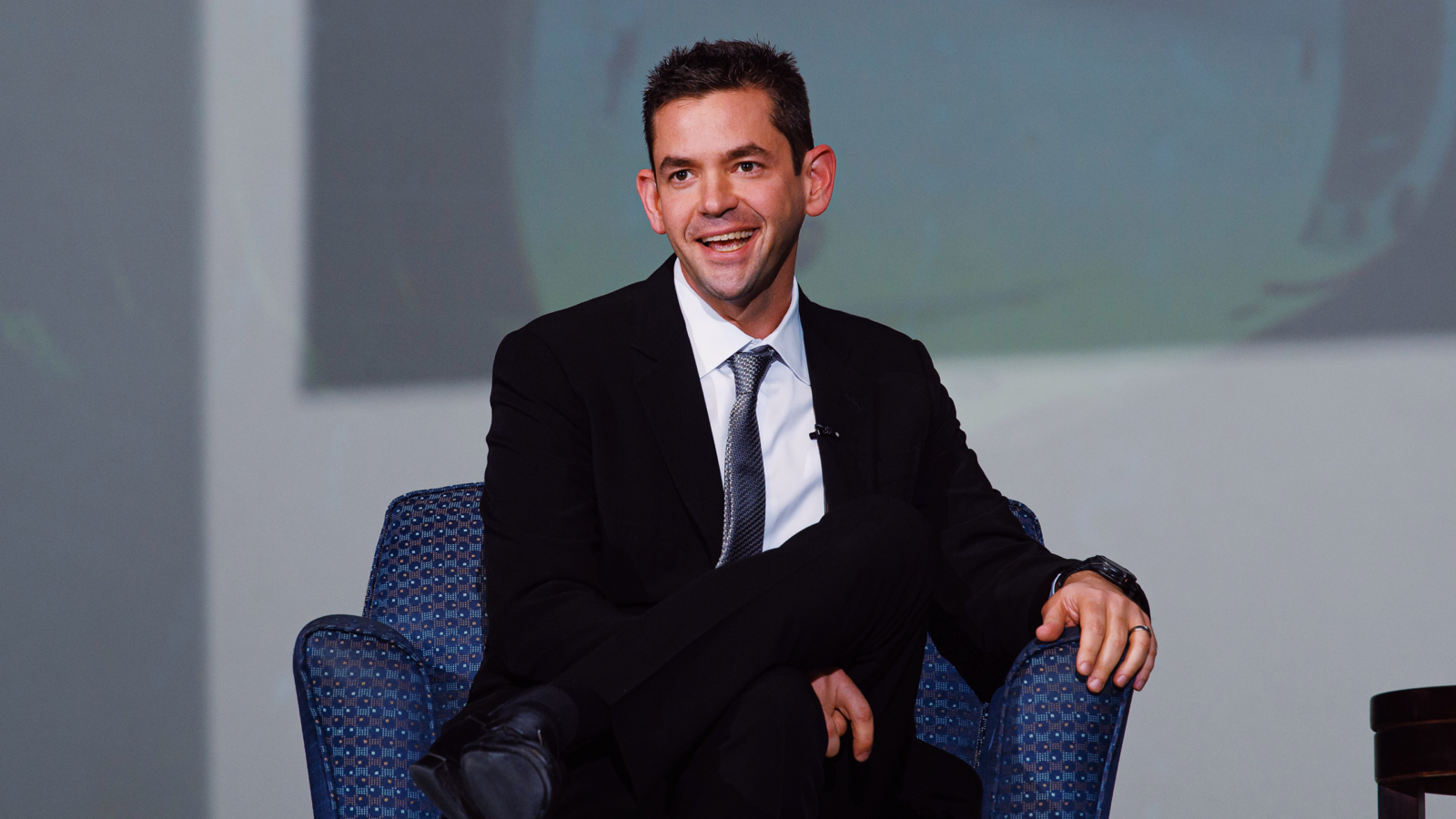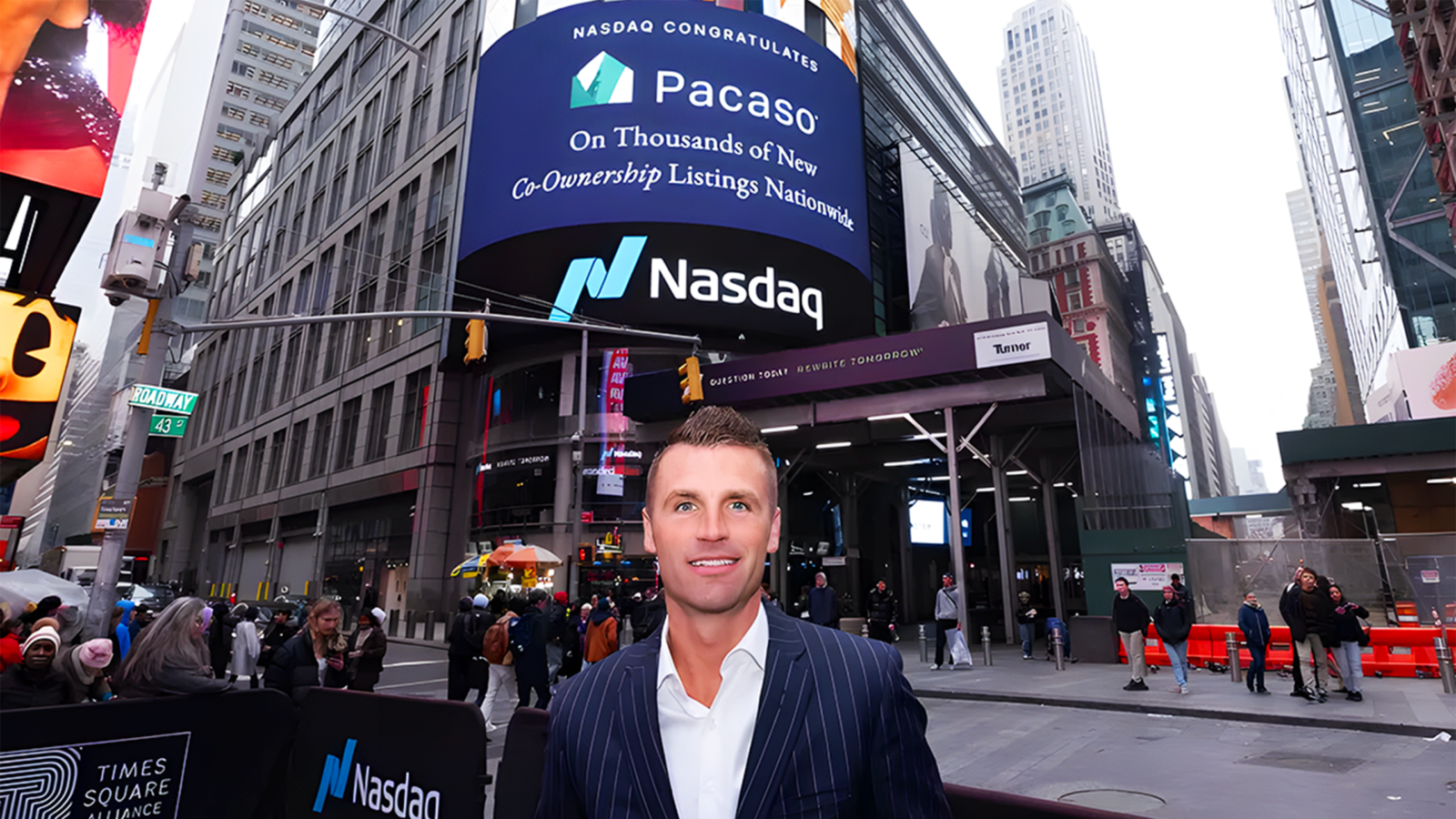Good morning.
The skies are growing distinctly unfriendly.
At a hearing on Wednesday, Senators blasted leaders from American Airlines, United Airlines, Delta Air Lines, Spirit Airlines, and Frontier executives over the rise of so-called junk fees applied to everything from seat selection to carry-on bags — with Connecticut Senator Richard Blumenthal claiming the airlines treat fliers like “walking piggy banks to be shaken down for every possible dime.” Hitting back, Frontier Airlines CEO Barry Biffle labeled fliers who try to avoid the airlines’ carry-on baggage fee “shoplifters.” Call us whatever you want, but just get us there on time, OK?
Musk Ally, Space Traveller to Run NASA in Boon to SpaceX

Even when you’re the richest man in the world, it helps to have friends in high places.
On Wednesday Elon Musk’s friend President-elect Donald Trump, who is soon to occupy the highest office in the land, tapped another of Musk’s billionaire allies, entrepreneur Jared Isaacman, to run NASA, the highest office out of this world.
Star Bromance
The announcement made a splash because tech entrepreneur Isaacman was part of the first all-civilian crew to reach orbit on a private space mission and later participated in the first commercial spacewalk. If he’s confirmed to run NASA, the private-sector space explorer will take over the world’s largest aeronautics and space body, a $25 billion public-sector behemoth with 18,000 employees.
Both of Isaacman’s private space missions, as it happens, were carried out by Musk’s SpaceX. Like almost all commercial space firms, SpaceX depends on contracts from taxpayer-funded government bodies to exist as a going concern. That tension could add to the gravitational pull being felt by SpaceX rivals like Jeff Bezos’ Blue Origin and Boeing thanks to Musk’s high standing with the incoming administration. “Everybody in the space industry is worried about Elon’s influence right now,” Charles Miller, a former NASA official who worked on its planning for Trump’s first transition, told Politico last month:
- SpaceX has indeed received roughly $19.8 billion in federal contracts since 2008, including $3.8 billion in the 2024 fiscal year, according to the database of federal contracts at USAspending.gov. That’s helped propel the company to insider negotiations that could make it, at $350 billion, the world’s most valuable startup.
- Isaacman, of course, is still his own man: shares in Shift4, the payment-processing firm he founded and leads, fell 12% on Wednesday at the prospect of losing a leader. He’d also bring his own personal experience of government contracting and flight equipment: he previously cofounded Draken International, a private air force provider that contracts with the US military.
Staying Grounded: Despite concerns, there was no immediate, drastic movement from publicly traded firms with skin in the space game: the ARK Space Exploration & Innovation ETF rose 2% Wednesday. The Procure Space ETF was little changed. Bezos’ Blue Origin, like SpaceX, is privately held. Boeing shares were up 2%, though the firm may not even be around in the sector for long—it’s reportedly considering selling its marquee space division, which has been humbled by SpaceX having to step in to bring home two astronauts its Starliner was supposed to return from the International Space Station.
Top Investors Are Buying This “Unlisted” Stock

When the team that created Zillow and grew it into a $16B real estate leader starts a new company, investors take note. That’s why top firms like SoftBank and Maveron already invested in Pacaso.
Taking the industry by storm all over again, Pacaso’s streamlined digital marketplace offers fractional ownership of premier properties – completely revamping a $1.3T market.
This co-ownership approach maximizes demand by minimizing costs and worries. Look no further than their 1,500+ happy homeowners across 40 destinations – including the most recent addition, Paris – for proof.
With over $100M in gross profits in four years, they’re ready to bring this co-ownership model across the globe. Just be aware – this is the final day to invest in Pacaso before their share price changes.*
Political Pressure Mounts on Shein and Temu
Shein and Temu have been able to keep the cost of clothing on their platforms alarmingly low, but there’s been a hidden political cost racking up.
The Financial Times reported on Wednesday that the EU is preparing to crack down on cheap imports from Chinese e-commerce giants such as Shein and Temu. The two China-founded companies exploded in size over the past few years by taking advantage of tax loopholes to directly ship their products to consumers all over the world — but just as the sustainability of that business plan is starting to fray, geopolitics are weighing even heavier on the firms.
Stalling Fast Fashion
Temu and Shein have made their names by selling unbelievably cheap products, and they’ve done that using a tax rule called de minimis. In the US, de minimis means that when you ship an item worth less than $80, you don’t pay import taxes on it. Both companies have been directly shipping individual products to make the most of that rule, and they’ve made such an impression on the e-commerce landscape that Amazon last month launched a rival called Amazon Haul. However, there have been signs that both companies want to exit growth mode and adopt more conventional e-commerce models, buying up warehouses and finding new suppliers.
At the same time, political sentiment has been turning against Chinese fast-fashion giants. President Joe Biden announced in September he would crack down on de minimis shipments, and as President Trump returns to the White House with “stick it to China” high up on his to-do list, it seems likely that there’ll be at the very least a continuation in US policy there, if not an intensification. Now Europe is turning against them as well:
- Five sources told the FT that in Europe, where the de minimis threshold is currently €150 ($157), the EU is looking at levying a tax on e-commerce companies’ revenue as well as adding a handling fee for individual items.
- This is poor timing for Temu in particular, as its parent company PDD Holdings reported in its most recent quarterly filing that its growth had slowed significantly, even though its sales were up 44% year-on-year. Its share price is down 33% since the beginning of this year.
London Calling: There’s one sliver of good political news for Shein and its much-anticipated London IPO. While a question mark had hovered over whether the UK might make life hard for Shein over allegations of forced Uyghur labor in its supply chain, the head of the country’s financial regulator hinted in an interview with the Financial Times this week that it won’t be slamming the door on the company. “What parliament has not asked us to do is to be a broad regulator around every aspect of corporate behaviour and every company listed in the UK, everywhere around the world,” Nikhil Rathi, chief executive of the Financial Conduct Authority, told the FT.
Google, OpenAI Race to Bring Generative Video to Market
Check the video, it’s going to be a photo finish.
As the year draws to a close, both Google and OpenAI are racing to bring their respective generative AI video models — Veo and Sora — to market. Declaring a winner in the race, in typical fashion for our new AI reality, may depend on your input prompts.
Video AI Killed the Text AI Star
Google didn’t announce Veo until May, three months after OpenAI first announced Sora — but now it’s beating OpenAI to the punch, sort of. Late Tuesday, the search giant announced Veo was now available in private preview mode to businesses using Vertex AI, its paid-for enterprise platform.
But OpenAI may win the race to the broader market. On Wednesday, CEO Sam Altman said at The New York Times Dealbook conference that OpenAI on Thursday would kick off a “12 Days of Shipmas” event featuring daily launches of new products, demos, and other features, and sources told The Verge that one of those days would mark the launch of Sora. (Savvy internet dwellers may have access to the model already: last month, a group of artists who had been part of a test group for Sora published an open letter criticizing OpenAI for “art washing” and allegedly leaked access to the video model on AI developer platform Hugging Face.)
Widespread text-to-video models would mark the next evolution in the AI race. Existing tools are already making an impact:
- Coca-Cola made waves last month when it debuted entirely AI-generated holiday-themed ads, made using an internal AI model powered by OpenAI — and predictably triggered some online backlash. The campaign features a collection of short snips of holiday-themed visuals, which likely reflects the relative limits of present generative video AI models; when first announced, Google said Veo can make clips that last around a minute long, though now it isn’t specifying limits.
- That’s still enough to make an impact on the bottom line, particularly for the advertising industry. At least according to Google, which claims 86% of companies using generative AI in the production process have seen an increase in revenue.
Apple a Day: If there’s one tech titan not caught up in the AI rush, it’s still Apple. On Wednesday, Wired published an interview with CEO Tim Cook, who stressed that the company is currently more excited about its health-focused suite of software and hardware than anything in the AI space. You know what they say: using an Apple app a day can keep the doctor away.
Extra Upside
- Insurance Exec Killed: UnitedHealthcare CEO Brian Thompson killed in apparent “targeted” shooting.
- Trust Bust: Trump taps noted Big Tech critic Gail Slater to head antitrust enforcement at the Department of Justice.
- Defend What You’ve Earned: Protect Your Credit Card Rewards. Congress is considering a piece of legislation that could wipe out your hard-earned credit card rewards, increase fees, and put your data at risk. Take action now and protect your points.**
** Partner
Just For Fun
Disclaimer
*This is a paid advertisement for Pacaso’s Regulation A offering. Please read the offering circular at invest.pacaso.com.

